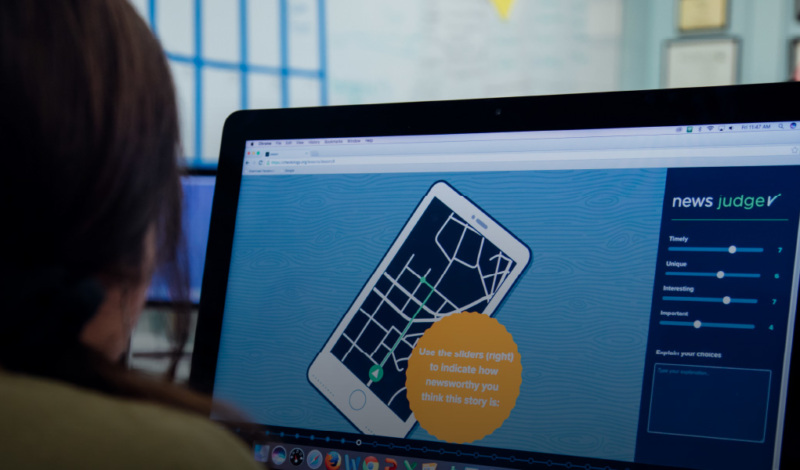

Classroom connection: YouTube search results to include fact-checker information
YouTube users in the United States will soon see information panels from third-party fact-checkers at the top of some search results, the company announced on April 28, citing the rapid spread of misinformation about COVID-19. The panels will appear in searches for specific claims and will feature relevant articles from “an open network of third-party publishers” of fact checks.
More than a dozen U.S. fact-checkers are already involved, the company said. These include FactCheck.org, PolitiFact, The Washington Post’s Fact Checker and The Dispatch. Participants must use the ClaimReview tagging system, a protocol developed by Duke Reporters’ Lab that extracts key details from fact checks so they can be displayed on other platforms. (Bill Adair, creator of PolitiFact, is head of Duke Reporters’ Lab.) Fact-checkers must be what YouTube calls an “authoritative publisher.” This is what YouTube considers an “established and relevant” source whose “expertise and trustworthiness” have been evaluated by external raters. Otherwise, fact-checkers must be verified signatories of the code of principles of the International Fact-Checking Network.
YouTube said its systems “will take some time” to “fully ramp up.” It piloted this feature in Brazil and India last year and plans to expand it to more countries over time.
Donation to fact-checking network
The announcement also said that the Google-owned video platform’s Google News Initiative is donating $1 million to the International Fact-Checking Network. The network is based at the Poynter Institute, a journalism training and advocacy center in St. Petersburg, Florida.
Also note: Citing violation of “community guidelines,” YouTube removed a widely disseminated video of a April 22 press briefing by two California doctors, Daniel Erickson and Artin Massihi. They used results from more than 5,000 COVID-19 tests conducted at their Bakersfield-area urgent care centers and private testing site to argue that shelter-in-place orders and business shutdowns are no longer needed. Erickson urged reporters to check with emergency doctors, who, he said, would support their conclusions. However, the American Academy of Emergency Medicine and the American College of Emergency Physicians condemned their remarks. They said “as owners of local urgent care clinics, it appears these two individuals are releasing biased, non-peer reviewed data to advance their personal financial interests without regard for the public’s health.”
Ask students:
Do you think YouTube’s move to highlight fact-checked articles in searches will help slow the spread of misinformation on its platform? Why or why not? What else could YouTube do to combat the spread of falsehoods?
Test the new feature
Once this feature is live, have students test it by searching for a specific COVID-19 claim. The company’s announcement uses “covid and ibuprofen” as an example. Ask them to provide a short summary of their experience. It should include the claim they searched, their search results, and whether a fact check appeared above the results. Then ask them to do the same search on other sites (such as Google, Bing, Yahoo, Twitter, Facebook and Pinterest). Finally, ask students to evaluate which is best at highlighting credible, authoritative information and demoting misinformation.